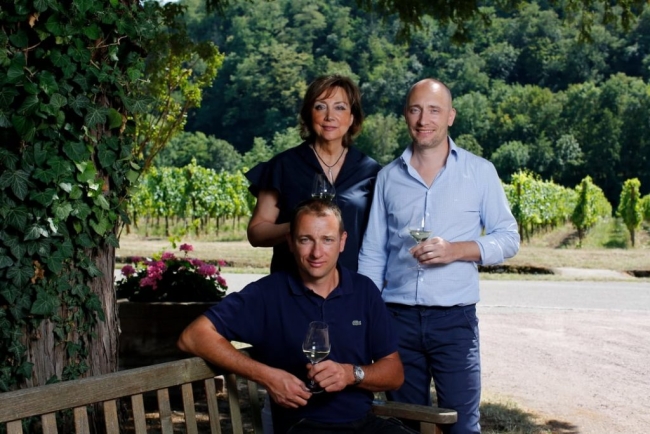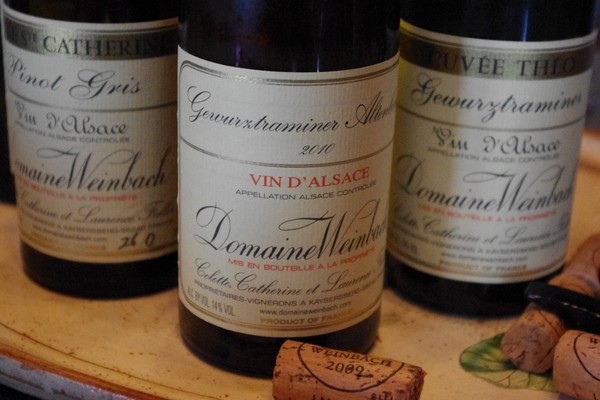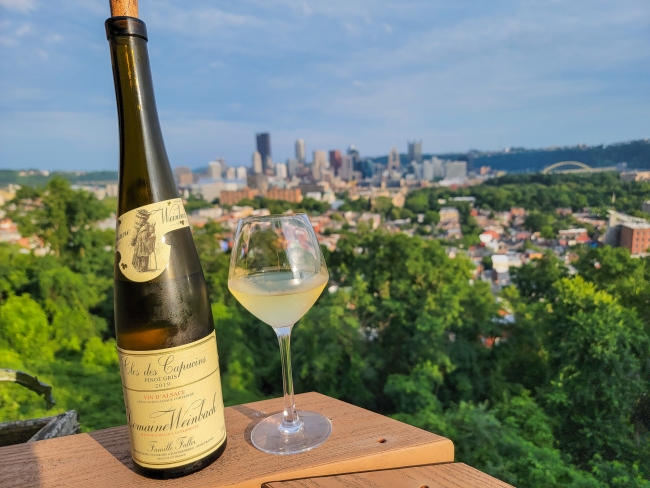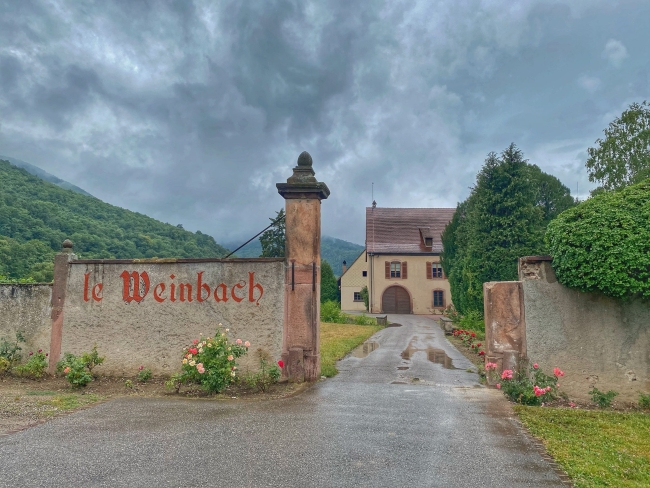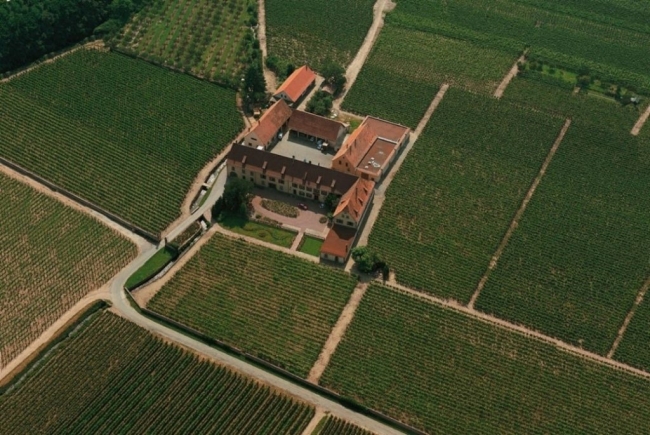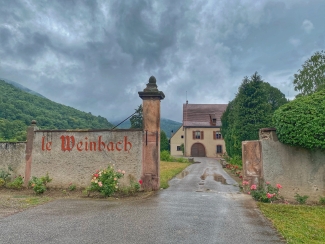
Story
THE HISTORY
At the foot of the majestic hill going by the name of Schlossberg, surrounded by vines and roses, lies Domaine Weinbach. Named after the little stream which runs through the property and planted with vines since the 9th century, it was established as a winery in 1612 by Capuchin friars. These vineyards, surrounded by ancient walls to this day, are specifically named Clos des Capucins. In addition to this, the estate’s history is commemorated with the image of a monk which fittingly adorns the labels. After being sold as national property during the French Revolution, it was acquired by the Faller brothers, Théodore and Jean-Baptiste in 1898 who then left it to their son and nephew, Théo. Théo Faller was a prominent figure in Alsace wine-growing and an ardent defender of quality wine production who became very involved in the establishment of Grand Cru appellation. He expanded Domaine Weinbach from 20 to 60 acres, planted vineyards that had been abandoned during the wars or devastated by phylloxera, and enhanced quality by focusing on yield control and rigorous fruit sorting. After his death in 1979, his wife Colette, his daughters Catherine and Laurence, and their team continued the family’s passion for the great wines of Alsace and its unrelenting commitment to delivering excellence. Since 2016, Catherine has led the estate winery with her sons, Eddy and Théo.
THE VITICULTURE
The main viticultural techniques employed are lowering yields; laboring and working the soils to favor biodiversity and rooting of the vines; and avoiding the use of herbicides, fertilizers, treatment products, and chemical insecticides. Since 1990, organic methods have been used, and biodynamics have been practiced at Domaine Weinbach since 1998. First applied on only a part of the vineyards, the total surface has been farmed according to these methods since 2005. Biodynamic viticulture respects life, stimulates biological activity and natural balances in the soils, and, ultimately, enables the terroirs to express themselves through the grapes and magnifies their sensory characteristics. Vines cultivated in accordance to these methods harmonize with their environment (labored soil and air); they produce natural and complex fruit, therefore the wine is more authentic and purely unique. The wine production process carries both the Ecocert (organic) and the Demeter (biodynamic) certifications.
THE WINEMAKING
Domaine Weinbach’s vinification carefully respects and reflects each of the grape varieties’ own qualities and characteristics, favoring minimal intervention balanced by constant attention, thus allowing the varietals to flourish and blossom. It all begins with the grapes, which are harvested at optimal ripeness and are picked with meticulous and thorough selections. The must is then extracted through gentle and progressive pressing. This is followed by alcoholic fermentation in ancient oak casks by native yeasts, adding to the wine’s authenticity and complexity.
Our Wines
| Gewurztraminer Altenbourg |
| Gewurztraminer Furstentum, Grand Cru |
| Gewurztraminer Les Trilles du Loup |
| Gewurztraminer Mambourg Vendanges Tardives |
| Muscat |
| Pinot Gris Clos des Capucins |
| Pinot Gris Les Caracoles |
| Pinots Furstentum Grand Cru |
| Riesling |
| Riesling Altenbourg |
| Riesling Colette |
| Riesling Cuvee Theo |
| Riesling RB0 Mambourg |
| Riesling Schlossberg St. Catherine, Grand Cru |
| Riesling Schlossberg, Grand Cru |
| Riesling, Les Vignes du Precheur |
| Schlossberg Sous La Foret, Grand Cru |
| Sylvaner Reserve |
Gallery
